NYC, New York: The High Line tops the list among the most unusual, vibrant public gardens. But, this spectacular urban park was once an eyesore, slated for demolition. There is a sense of discovery everywhere. Artwork, seating areas, water features, shopping, and eateries are all surrounded by nature in this unlikely but beautiful setting.
Whether you are planning a trip to the High Line or want to see it from afar, this post will take you over the rails to experience this dynamic public park. A High Line Garden Travel Guide is located at the end of the post to assist in planning your visit.
Why the High Line Was Built
The High Line was built on an elevated freight line with a history dating back to the 1800s. It is a continuous 1.45-mile greenway above the streets of Manhattan and features more than 500 species of plants and trees.
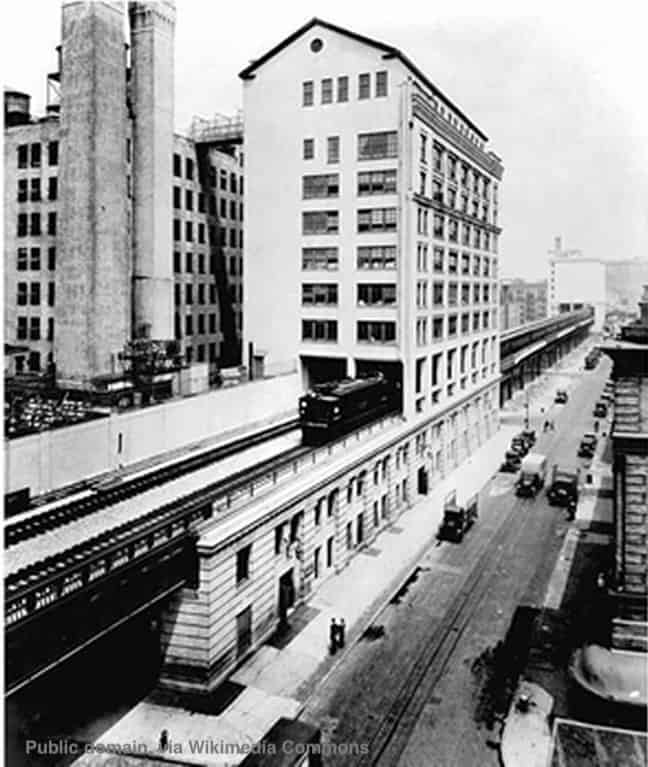
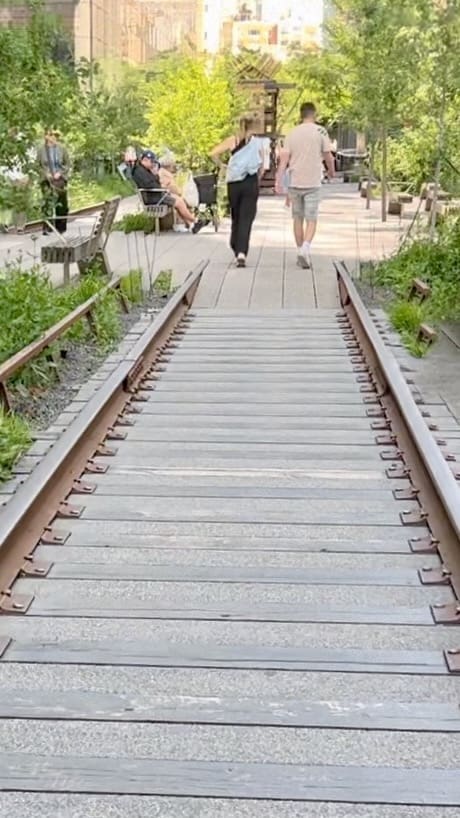
When the rail fell into disuse in the 1960s, demolition of the structure seemed an obvious solution. However, local residents saw a thriving garden of wild plants taking root on the abandoned track and envisioned a new use.
A nonprofit conservancy was formed and successfully preserved the railway grounds.
The Opening of the High Line
The transformation of the railway ground began in 2006, and the first section of the High Line Park was completed in 2009. Extensions of the High Line continue today, and the park is a global example of how cities can transform unused industrial zones into dynamic public spaces.
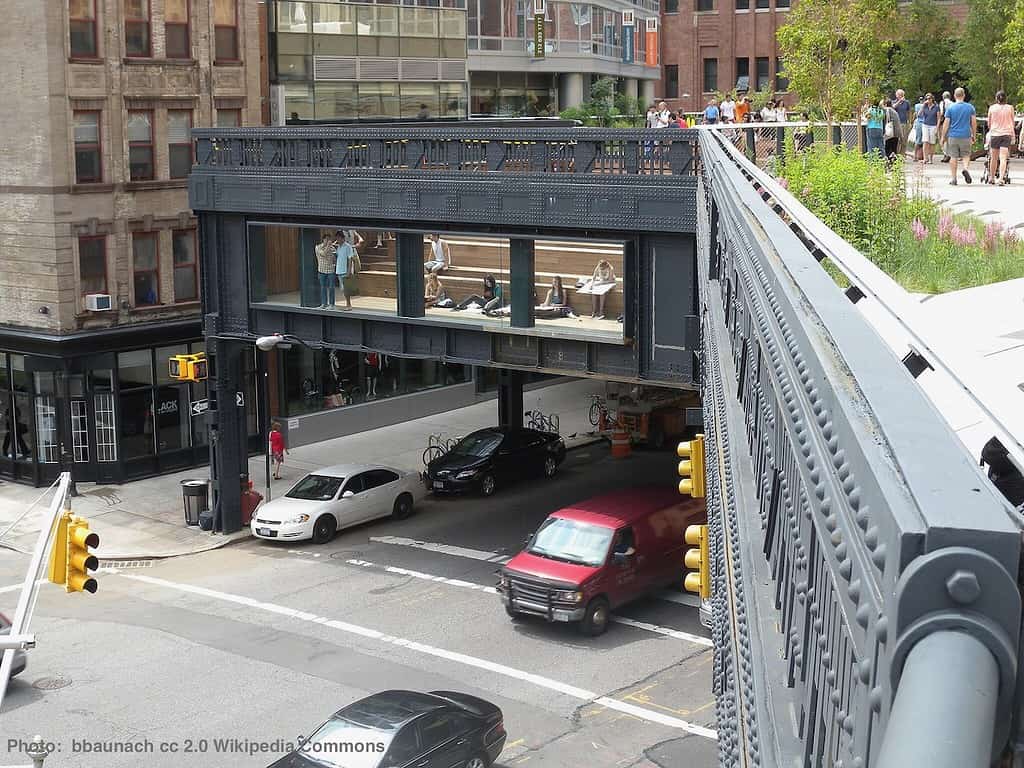
The Gardens on the High Line
The High Line’s planting design was led by Piet Oudolf, a world-renowned figure of the “new perennial” movement. The design was inspired by the self-seeded landscape that grew wild for 25 years when the rail fell into disuse.
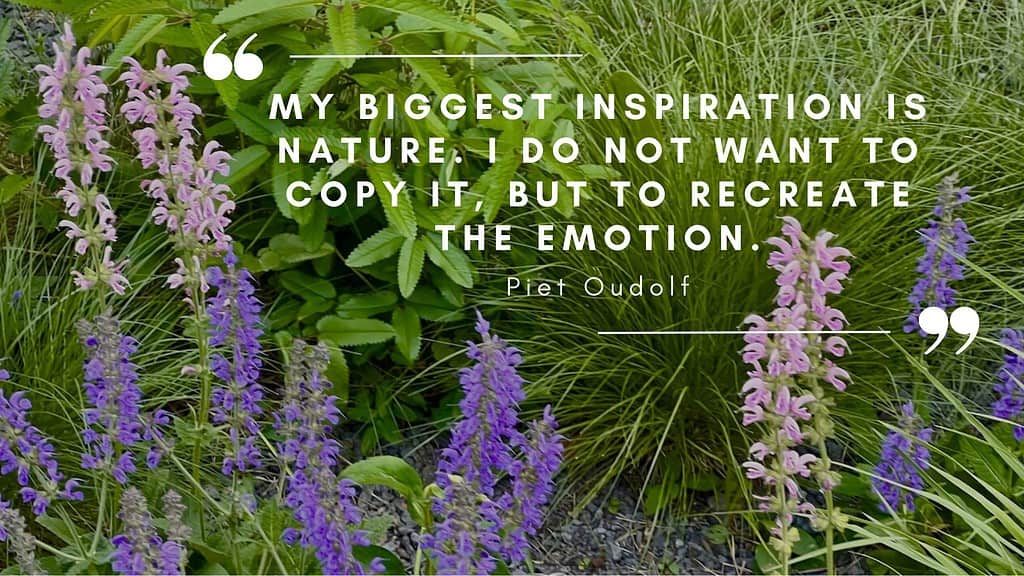
There are 16 garden zones along the High Line that are carefully curated. The cityscape creates microclimates that impact plant selection, providing changing landscapes as you walk from block to block.
” SEASONAL CHANGE OCCURS IN A NEAR-INFINITE SUCCESSION OF SMALL MOMENTS, AND LEARNING TO SEE AND UNDERSTAND THESE LITTLE HAPPENINGS IS A WORTHY LIFETIME PURSUIT.”
— Rick Darke and Piet Oudolf, Gardens of the High Line: Elevating the Nature of Modern Landscapes
A plant list can be found on the Highline website and is an amazing six pages long.
It wasn’t until after my visit that I discovered the Bloomberg Connects High Line app. It details each garden zone, including plants you might see in that area.
Discovering the High Line Park
The High Line is a magical experience combining people, gardens, and art with the city as its backdrop.
“Old Tree,” by Pamela Rosenkranz, stands 25 feet tall. The neon red color draws the eye prompting exploration.
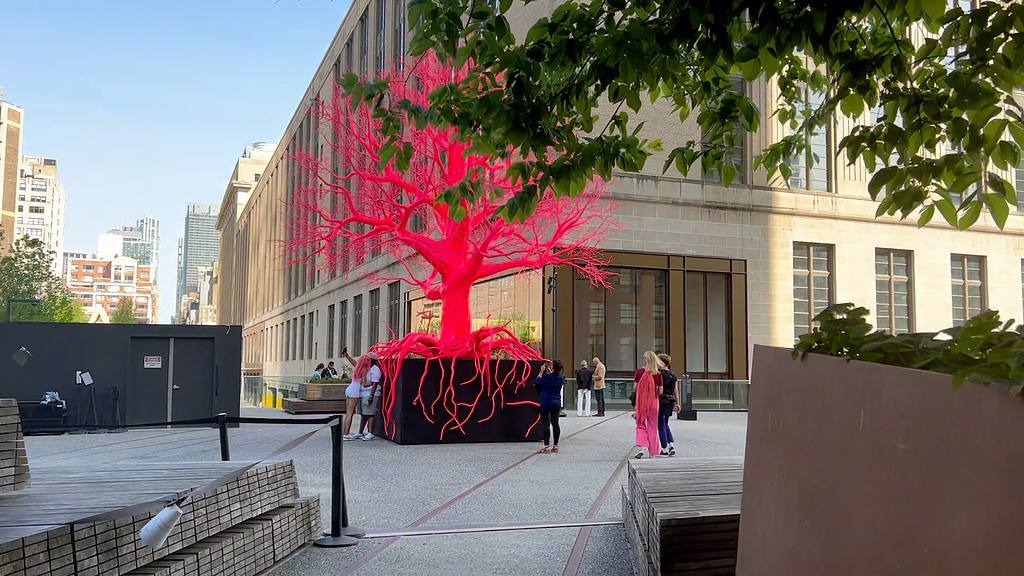
Amid the hustle of New York City, people slow down to admire the art, take a stroll with a friend, or sit and enjoy the view.
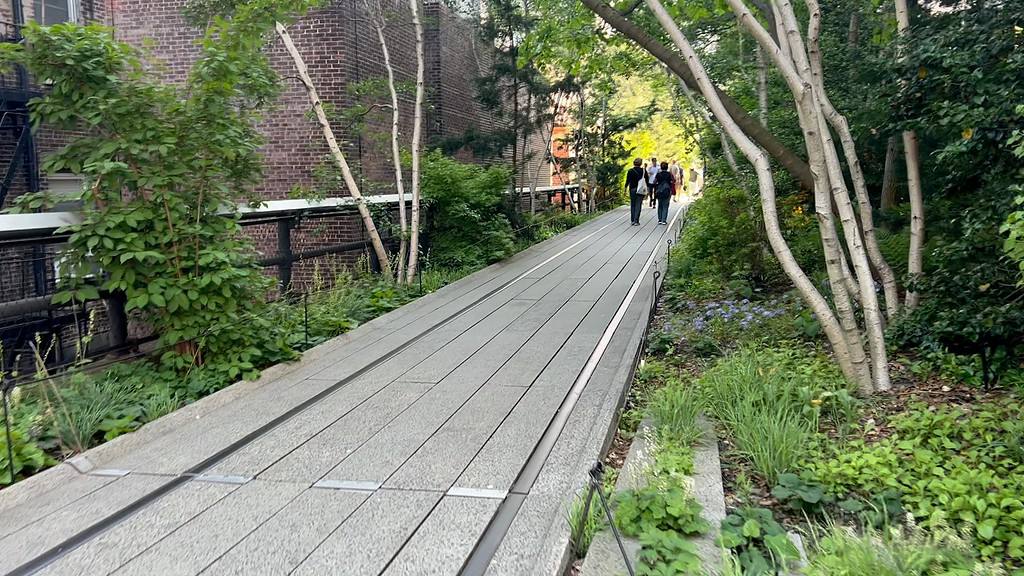
A self-meditation app was placed on the High Line and is free to download. This 10-minute experience expands your awareness as you walk through the gardens. Scan the QR code on the sign and listen to the meditation as you walk the High Line or through your own neighborhood.
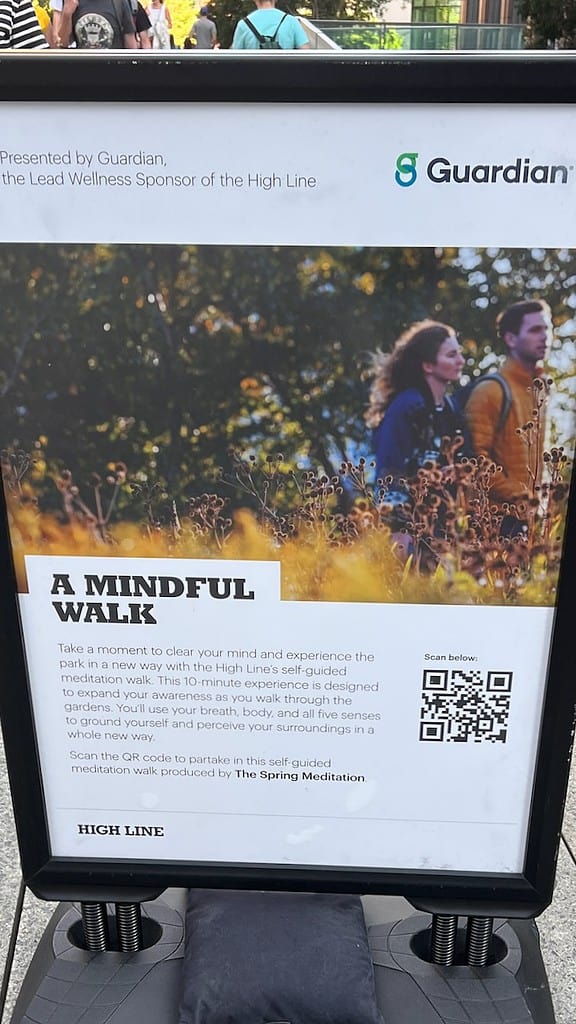
Go with a sense of adventure, and perhaps you, too, will be enchanted by this unique urban park.
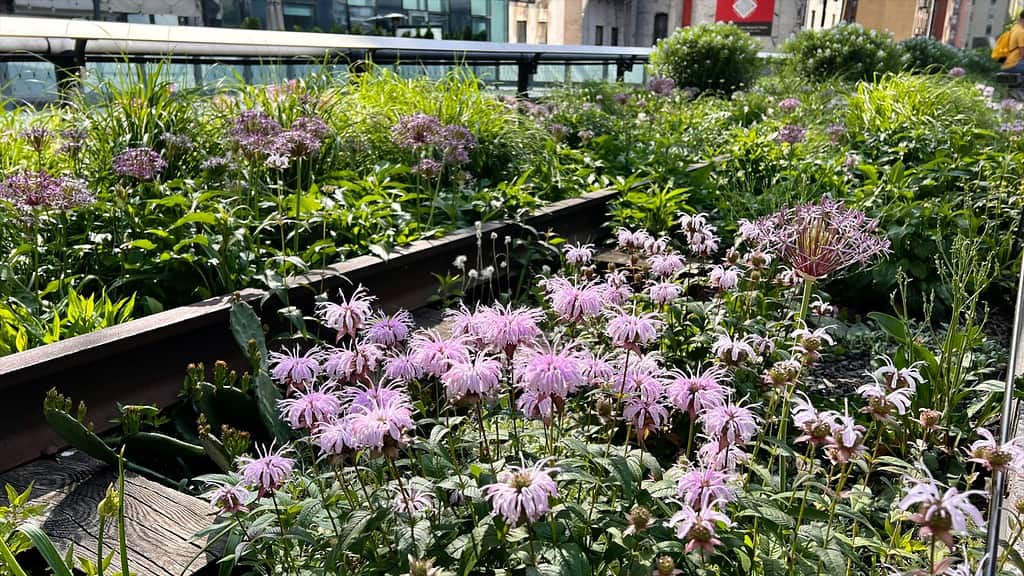

Visitors Guide: The High Line, New York City
Address:
Located on Manhattan’s West Side, there are over a dozen access points: See the High Line Website and scroll to “Park Access and Info“.
High Line Map
Download the High Line Pocket Guide for an up-to-date map, including access points and the location of artworks.
High Line Hours
December 1 – March 31: 7 am to 8 pm
April 1 – November 30: 7 am to 10 pm
Admission to High Line
It’s FREE! Consider a donation, as nearly 100% of the High Line’s annual budget comes through donations from the public to help operate, maintain, and program the park.
High Line Transportation
The High Line is easily accessible by subway, bus, and bike. See the High Line Website and scroll down to “Transportation” for details.
High Line Pet Policy
A “no dogs” policy is necessary because of the limited space, the large number of visitors, and the health of the High Line’s landscape.
Accessibility at High Line
The entire High Line is wheelchair accessible. Refer to the “Access & Info” section on the High Line website for the location of elevators and ramps.
Where to Eat on the High Line
There are over a dozen vendors serving food and drink on the High Line. From wine to gelato, enjoy a treat and support the park: A portion of all purchases support park maintenance. Find a description of vendor offerings under “Eat and Drink”. My favorite: Malai South Asian artisanal ice cream.
Mission of the Garden
“The Network’s mission is to support a community of infrastructure reuse projects in creating vibrant and equitable public spaces.
Together, the Network explores how to create a world where people have access to vibrant public spaces that center local communities, build civic connections, support environmental resilience, and foster equitable community development.”
High Line Website
Other Gardens Near the High Line
While in New York City, check out the New York Botanical Garden. It is one of the largest urban botanical gardens, a national landmark, and on my list, one of the top 10 botanical gardens to visit in the United States.
Recent Posts
Museums for All in Botanical Gardens and Arboretums Blooming with Access
Museums for All is an initiative that allows individuals and families receiving food assistance (SNAP EBT - Supplemental Nutrition Assistance Program Electronic Benefit Transfer) to gain free or...
San Diego Botanic Garden, Encinitas, CA: The San Diego Botanic Garden in Encinitas is a 37-acre sanctuary about a 30-minute drive north of the city of San Diego. Just a mile from the Pacific...
